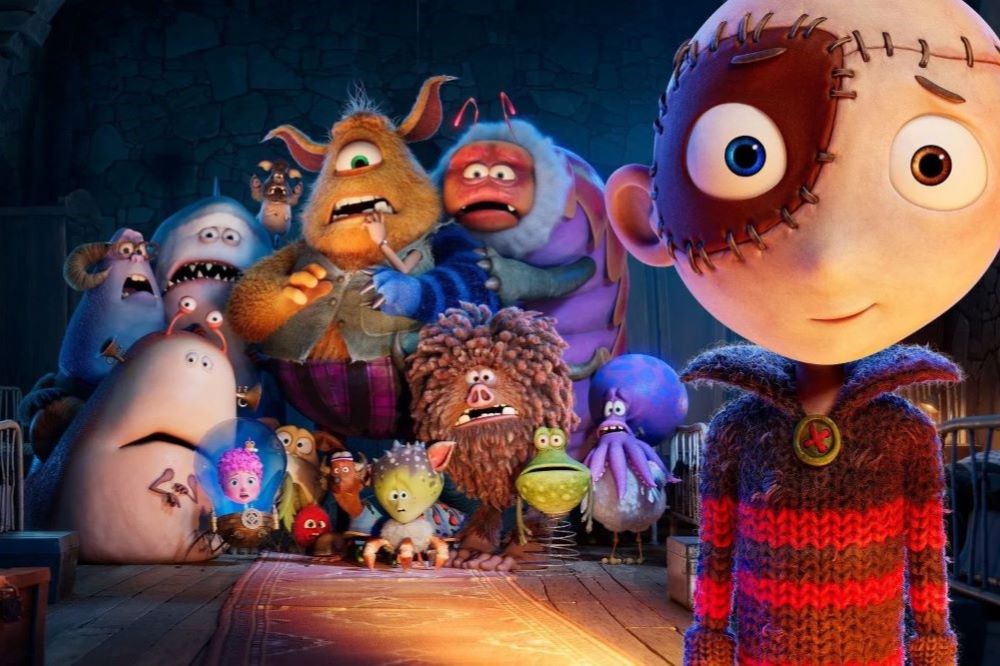
Summary
Let's hope that one day power will become unbearable to all people.
I'm filming from a disadvantage. In every sense.
Although I did not film any details, everything seems to have been captured solely by a procedure characteristic of filming details. This is what happens when we worry about our own problems.
When someone asks me who I work for, I answer him by asking: Who are you poor for?
Even this movie was shot as if it was my last. And this time I have to find that I had nothing to say or show anyone. No thought, no advice, no understanding. I am convinced that this is one of the methods of making a film uninteresting.
Only the films that break the order are real. There is no other way to make movies today. The less successful a film is or the less it tends to be watched, the more unconventional it may be. Unconventional means not only the unknown, but also the uncomfortable, the repulsive.
An audience only exists when a person allows it to be addressed as a lower part of the body. A full movie theater means lower incentives. Every movie in the end must be a disgrace. (Vlado Kristl)
How to make images unusable for power? Vlado Kristl started a project of utopian art that resists every system, first his own after the experience of World War II, persistently moving here and elsewhere his "poor" line between the framework of lyrical abstraction and neo-constructivism, poetry, animation and film, painting, theater, multimedia and conceptual art. Positives and negatives, variants and variables, authority movies, anarchy houses, postmodern school, frame politics, picture-painting, death-painting, spectator death, Don Quixote, Prometheus, clone saga, utopias, some are of the distracting images from his studio for visual concepts.
"I received a letter: Your anti-state insult has been burned and we will hold you accountable. I fled to Germany. In the end, the system always wins. ”The manifestation of the film of distraction, a reflection of the uncontrollable anarchy of our world, is a film to insult the state The General and the Real Man. His exile sequel Poor People is on the same line of escape, on the transition from a prison society of discipline to an urban space of a society of poverty. The only way for the poor to try the right for the abandoned city if, in some repetition, they walk out the prison door (it seems we saw workers rehearsing their way out of the factory) is anarchy. But it's also a word from the system. Kristl stands for ich, provoking a man's "I": laughing against the generals, with the pot against the poor, grotesque about eros, film about film. The uprising erupts. Five, ten, twenty, fifty poor are holding a revolution in the big city and chasing a man with a tin can with the sounds of assault, cannon and gunfire. Around the movie, the real man composes and decorates their poses and gestures, motionless bodies with lines and surfaces of steps and walls. It is a paradox that everyone has a right to a film, including the right not to exercise that right. Only the film that dropped out of the system is a film. (Tanja Vrvilo)
featured
Film Mutations: Festival of Invisible Cinema XIII.
Cinemaclash! Film+Power
Film Mutations: Festival of Invisible Cinema XIII. subtitled Cinemaclash! Film+Power is being held in Art-kino → more
06.-09.02.2020.
Film Is More Than Film
Film ist mehr als Film, Austria, 1996., director: Gustav Deutsch, feature film
Border
Border, France / United Kingdom, 2004., director: Laura Waddington, documentary
Pasolini's Anger. Hypotheses for the Reconstruction of the Original Version of the Film
La rabbia di Pasolini. Ipotesi di ricostruzione della versione originale del film, Italy, 1963.-2008., director: Pier Paolo Pasolini, Giuseppe Bertolucci, documentary
6/64: Mom and Dad (An Otto Mühl Happening)
6/64 Mama und Papa (Materialaktion Otto Mühl), Austria, 1964., director: Kurt Kren, eksperimentalni
7/64: Leda and the Swan
7/64 Leda und der Schwan, Austria, 1964., director: Kurt Kren, feature film
Liberty
Liberté, France / Portugal / Spain / Germany, 2019., director: Albert Serra, feature film
Actors: Submission and Pleasure: Opening of the Festival
Actors: Submission and Pleasure,
Cinema Conversation
Cinema Conversation,
Film is. 1-6
Film ist. 1-6, director: Gustav Deutsch,
In the Name of the Law
Enligt lag, Sweden, 1958., director: Peter Weiss, Hans Nordenström, documentary
12th December
12 dicembre, Italy, 1972., director: Giovanni Bonfanti, Pier Paolo Pasolini, documentary
Power and Rebellion
Albert Serra - Selection of films,
Tommaso
Italy / United Kingdom / United States / Greece, 2019., director: Abel Ferrara, feature film
Symposium - Power of Cinemaclash
Symposium - Power of Cinemaclash,
Women's Quarter
Qaleh, Iran, 1966., director: Kamran Shirdel, documentary
Tehran Is the Capital of Iran
Teheran, Payetakht-e Iran Ast, Iran, 1966., director: Kamran Shirdel, documentary
The Incomparable of The Non-comparable
Lo incomparable de lo no comparable, France, 2019., director: Paul Grivas, feature film
Jean-Luc Godard: Initiation into the revolutionary film
Initiation au cinéma [révolutionnaire], France, 1969., director: Jean-Paul Török, documentary
1968: A Blind Archive
1968: A Blind Archive, Mexico, 2014., director: Bani Khoshnoudi, documentary
Visual Riots
Visual Riots,
Socialism
Film Socialisme, Switzerland / France, 2010., director: Jean-Luc Godard, feature film
Film Catastrophe
Film Catastrophe, France, 2018., director: Paul Grivas, documentary
Film/Speaks/Many/Languages
Film/Spricht/Viele/Sprachen, Austria, 1995., director: Gustav Deutsch, documentary
The Hills of Marlik
Tappeha-ye Marlik, Iran, 1963., director: Ebrahim Golestan, documentary
Brick and Mirror
Khesht o ayeneh, Iran, 1965., director: Ebrahim Golestan, feature film
El Grito
El Grito, Mexico, 1968.-1970., director: Leobardo López Aretche, documentary
Visual Riots
Nicole Brenez,
9/64 O Christmas Tree
9/64 O Tannenbaum, Austria, 1964., director: Kurt Kren, feature film









































